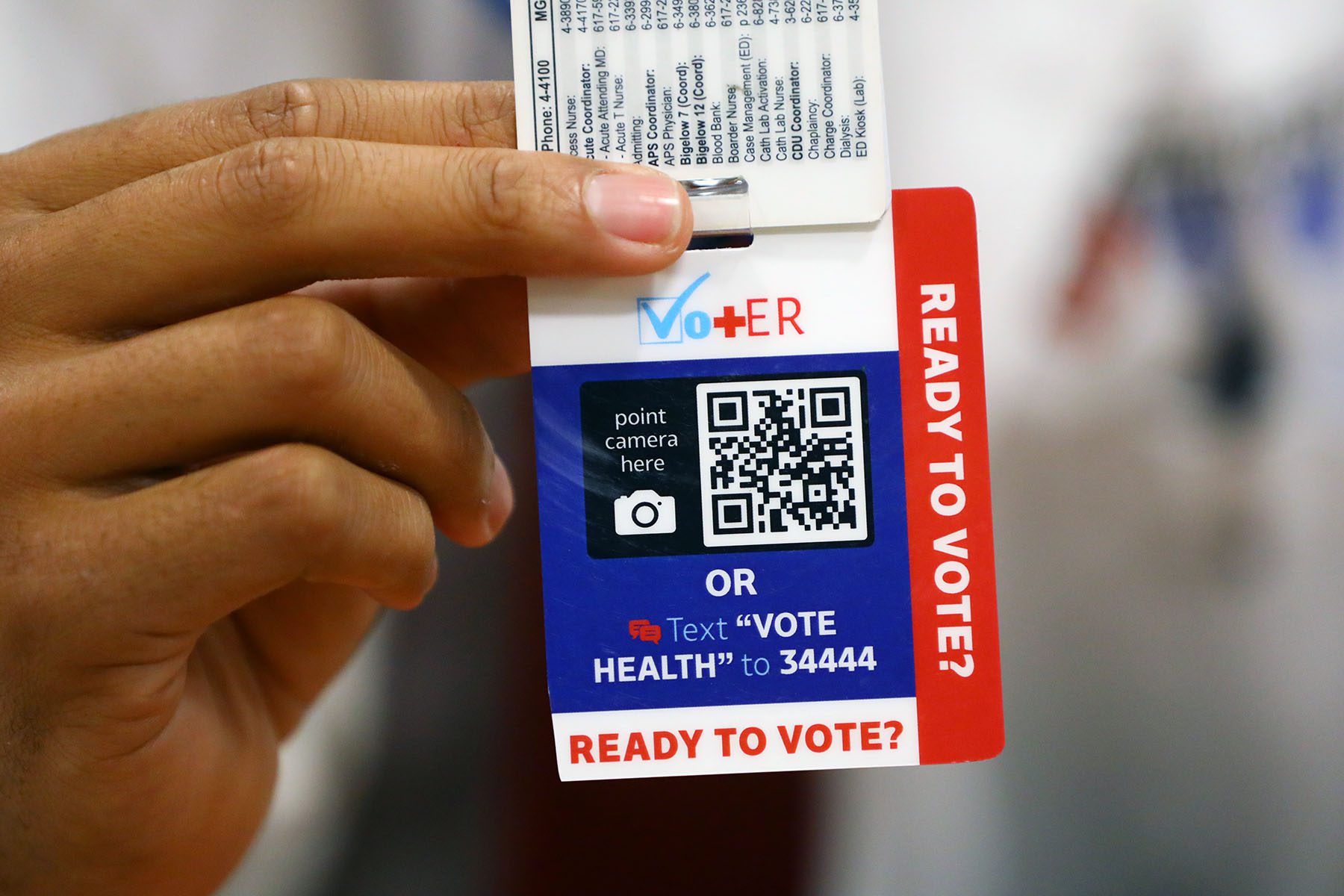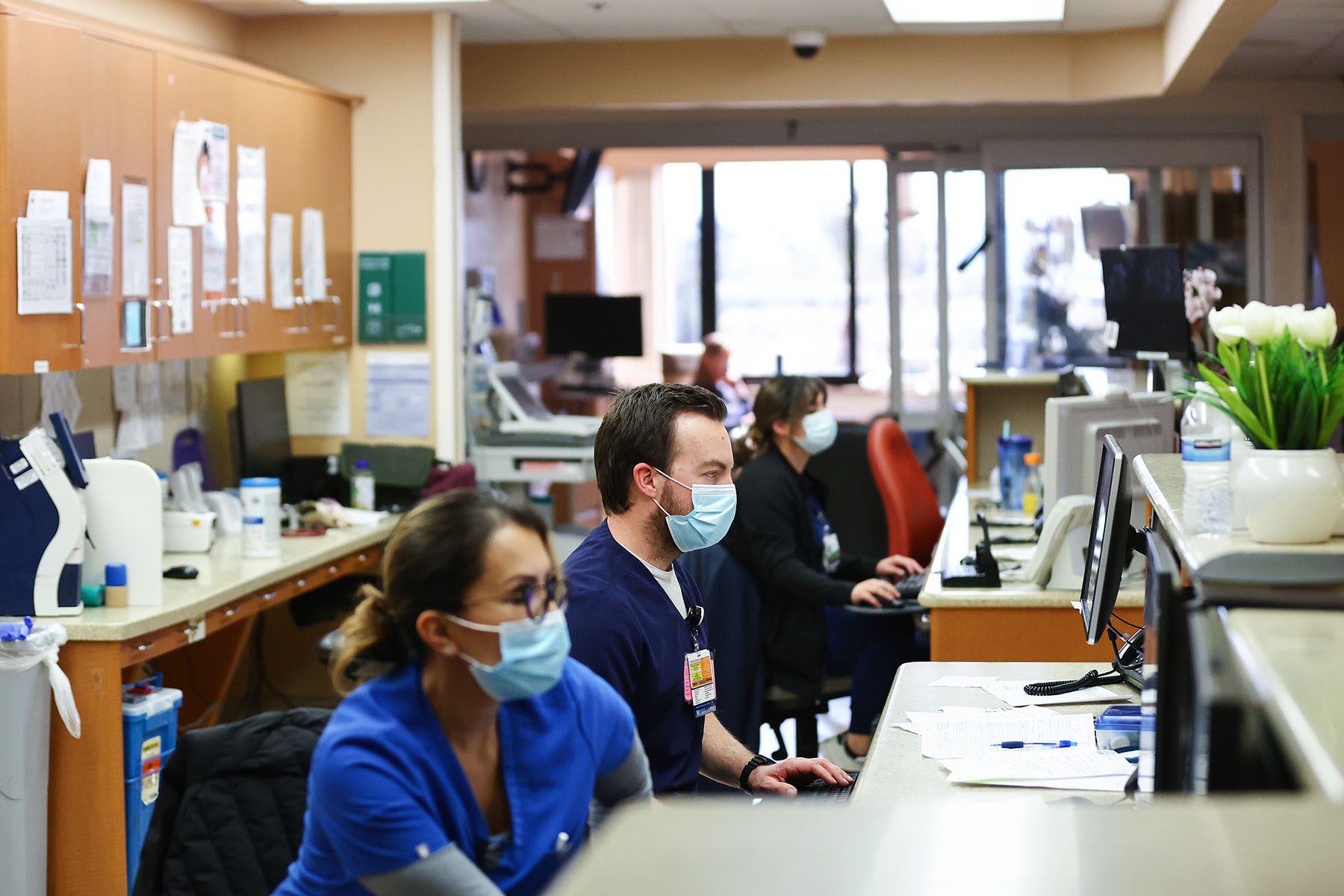Four days after the Supreme Court issued its decision that ended a federal right to an abortion, Kimberly Fleary took to TikTok to share what happened in the 12-hour shift she’d just finished. She’s a forensic nurse in San Antonio who specializes in working with victims of sexual violence.
That day, she had seen patients back to back over her 12-hour shift, performing hourlong exams, including rape kits. One patient had been told by her assailant, Fleary recounted, that he was going to “make her have his baby.”
“You just sit there and you think, ‘wow, this is gonna get even worse.’” Fleary said. The state had already banned abortions after six weeks of pregnancy, but an all-but-total ban was set to be put into place in just two months.
Fleary said that since the decision in Dobbs vs. Jackson Women’s Health Organization, survivors of sexual assault have had trouble getting emergency contraception like Plan B, even though it’s not banned, because some doctors aren’t comfortable providing a prescription for it.
“Imagine going to the hospital for help — which takes a lot of courage — after being sexually assaulted and then not getting the help you thought you would get?” Fleary said.
The shift post-Dobbs motivated Fleary to educate herself about where politicians stand on health care, including abortion. She has always voted, but now she feels the need to be more informed. She has talked to co-workers and used TikTok to talk about the importance of voting and being knowledgeable about policies and how they impact health care providers and patients. She feels she needs to do more and says she’s not alone.
“I have seen a large increase of clinicians on social media expressing their views and using their platform to educate and encourage people to vote and to stay informed on current politics. I’ve also seen these clinicians provide websites and phone numbers of organizations people can call, or join, to help fight for women’s rights,” Fleary said.
A 2021 study suggested that while physicians had long voted at lower rates than the general population, that percentage may have grown in 2020. And now a number of nonpartisan groups are working to get both nurses and physicians more engaged politically. They are pointing to the COVID-19 pandemic and shifts in abortion laws that affect how doctors can do their jobs as a reason to register and vote.
The group now known as the Civic Health Alliance (CHA) started two years ago as #VoteHealth2020 to increase civic engagement among physicians and to support the medical profession’s equity work. It was founded by four doctors of color who wanted to not only improve voter turnout but improve engagement by both their colleagues and patients.
“We’re nonpartisan. We don’t tell people how to vote — just how important it is that they do,” says Russia Chavis, a communications liaison for the CHA. The group sees people they reach being more active in politics because of recent events, including COVID and Dobbs. “It’s hard to ignore it or detach yourself from it. … Policy has impacted their work, but never like this and on so many levels and populations.”
In 2020, one of the founders of what is now CHA spoke at a voter awareness event with the American Medical Association. Dr. Stella Safo, an HIV primary care physician in New York, said that doctors often have not taken what they see – the impact of policies on their patients – and translated that into civic action.
“When you have food deserts or systemic racism and its impact on chronic illness, we as clinicians tend to see that and we see it consistently, and yet somehow doctors vote less than lawyers or farmers or teachers,” she said. Safo said she was “really fired up to get all of our physician colleagues and really any of our health care worker colleagues out to engage in voting this year.”
Two years later, what started out as a monthly newsletter with civic engagement resources for medical professionals has grown into a network of health collaborators with a common goal: increasing civic engagement across the board for patients and the professionals who take care of them.

One of the groups that CHA collaborates with is Nurses Who Vote, founded in 2018 by Elizabeth Cohn, a nurse practitioner and professor of nursing and community health at Hunter-Bellevue School of Nursing
“For us, civic engagement — engagement in voting particularly — is critical. … We see what happens when we don’t. Most certainly these things have been a motivator.” Cohn said about the impact of the COVID pandemic, monkeypox outbreak and the Dobbs decision. She pointed to a report by the Office of Disease Prevention and Health Promotion that identified voting as a social determinant of health.
“With that being included now, as a factor in healthy people, we know that voting can … actually improve community health and individual health,” she said.
Cohn said nurses divide pretty evenly between Republicans, Democrats and independents. She kept this in mind when she started Nurses Who Vote. Instead of trying to sway nurses to stand on a particular side of the aisle, she says, the work has been about leveraging the voting power of nurses to stand on the side of their patients and health.
The organization has spent the past five years creating space and engaging around issues that impact their field and patient health, including staffing, disproportionate mortality rates among Black infants and mothers, and access to health care. Its main goals? Getting nurses registered to vote and equipping them with the resources to make the most informed decision at the polls.
“We try to get nurses to look at every election through the lens of health because we all care deeply about the health of our patients, our communities,” Cohn said. “We’re really trying to unite nurses around using this lens of health to influence the choices they might make when they’re at the voting box.”
For Cohn, this has meant informational programming and campaigning around environmental issues and Medicare expansion. The Nurses Who Vote website links to a database of candidates running for office as well as Election Day resources for voting. Most recently the group has been promoting the #nursesvote challenge, where nurses use the hashtag to show off their civic activity.
Nurses Who Vote and CHA have also worked to encourage patients to register and vote.
They’re working with Vot-ER, a nonpartisan nonprofit organization working to integrate civic engagement into health care from medical schools to doctor’s offices to hospital emergency rooms. The organization has helped thousands of people get registered to vote and boasts that it has programs in over 500 hospitals and care clinics across the country.
Cohn said the groups aren’t pushing people to support specific candidates or parties, just to think about health care when they are making their choice, especially as politicians are making decisions that directly impact how clinicians do their work.
“Honestly the exam room is getting crowded. It’s us, the patient, the lawyer and the legislation all in there, and that’s no way to treat people,” she said.







